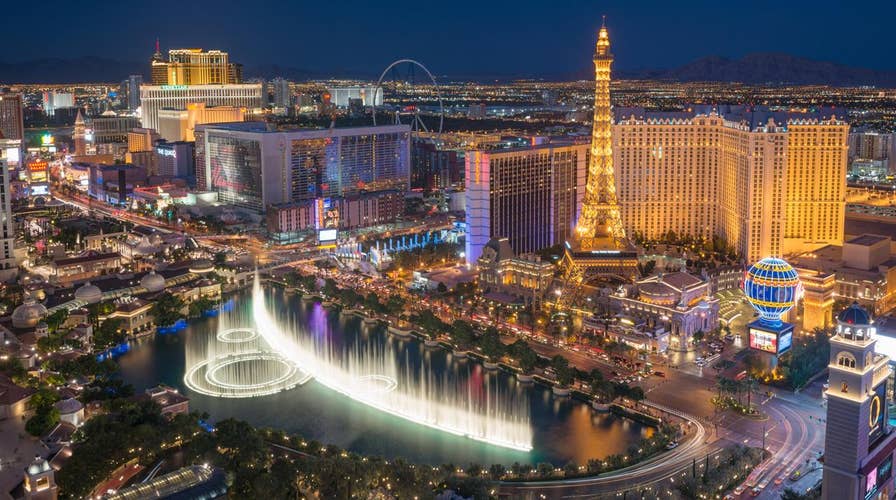Nevada recreational weed rollout on schedule amid snags
State officials and businesses are gearing up for pot legalization on July 1
Call it a "strip"-tease: Nevada this weekend will technically legalize marijuana possession, but that doesn't mean gamblers and revelers can light up on the Las Vegas Strip.
The new rules go into effect on July 1, allowing people 21 and older to legally possess an ounce of marijuana.
The law, however, does not allow for public consumption on the Las Vegas Strip or in any casino or hotel. State gaming regulators have taken the stance that since the substance remains illegal on a federal level, casino owners should not jeopardize their license.
Meanwhile, residents continue to fiercely debate the scope and merits of the policy approved by ballot measure last fall.
Clark County will hold a public hearing Aug. 1 to consider whether to outlaw the possession of the substance at McCarran International Airport. Even this weekend's implementation was fraught with legal issues. A lingering court dispute over rights of distribution and transport between dispensaries and alcohol vendors threatened to push off the start date -- but legalization is now set to proceed.
Ahead of the July Fourth holiday, sellers in and around Las Vegas are expecting a high volume of customers come Saturday.
Andrew Jolley, owner of the local dispensary Source, is confident about the changing tides of opinion when it comes to the drug.
“The reality is much different than the stigma,” he said. “The reality is that crime goes down, abuse is not dramatically impacted, if anything it goes down. Opioid addiction and opioid problems decrease in states with medical marijuana and I think people are realizing, through examples like Colorado and Washington and Oregon, that medical programs and legalization don’t lead to negative societal impacts, if anything it’s the opposite.”
The Nevada state legislature passed a medical marijuana law in 2013 and while dispensary owners have admitted that sales have been sluggish, they hope recreational marijuana legalization will offset the difference.
Armen Yemenidjian, owner of the Essence dispensary on the strip, touts Nevada’s record for compliance in other industries and compared it to the gaming business: “The reason why Nevada is different is because we are Nevada. We are a state that is built on regulation, a state that is built on enforcement, a state that is built on compliance. We have gaming here which is the most highly regulated, highly compliant industry there is.”
Some opponents, though, blast the expedited process of legalization. Rather than taking a full year to implement, Nevada wanted the rollout done in six months.
“Nevada’s politicians have bought into this notion that there is a lot of tax revenue that will be immediately available to us if we expedite this, and they’re merged together with the industry that is begging for recreational marijuana because they apparently have an under-subscription of people that are buying medical marijuana,” said James Hartman, who fought the original ballot measure and helped found Nevadans for Responsible Drug Policy.
He thinks the industry and Nevada politicians made a backroom deal.
The substance will be heavily taxed around 30-35 percent. Hartman cited Colorado and Alaska as states where projected tax revenues have fallen short of initial projections.
Alaska legalized recreational marijuana in February 2015 after a referendum vote the previous November. The state’s Department of Revenue projected $12 million in sales for 2016; however the latest figures show officials only collected $692,929 in marijuana tax revenue by late October of last year.
Even though the ballot proposal passed by 55 percent in the 2016 election, 13 of Nevada’s 17 counties voted against it.
Hartman offered a remedy for some local jurisdictions, suggesting they use zoning regulations and public nuisance measures and pass ordinances saying they will only follow federal marijuana laws.
Municipalities do have the choice to opt out.





